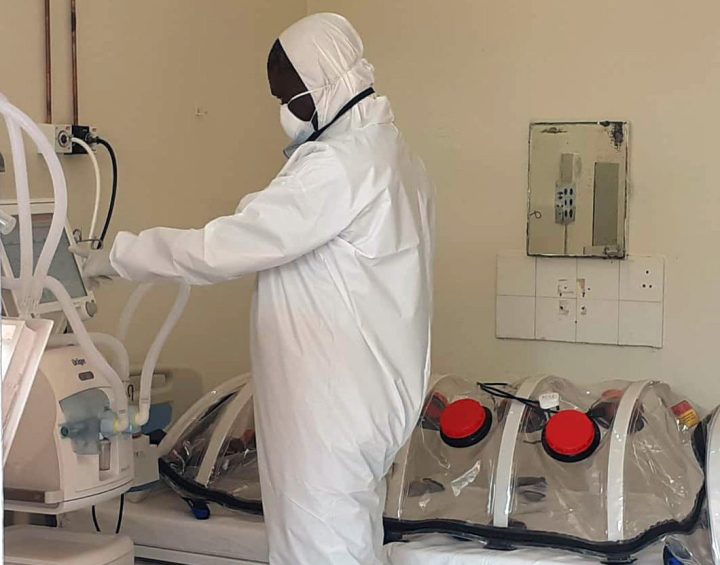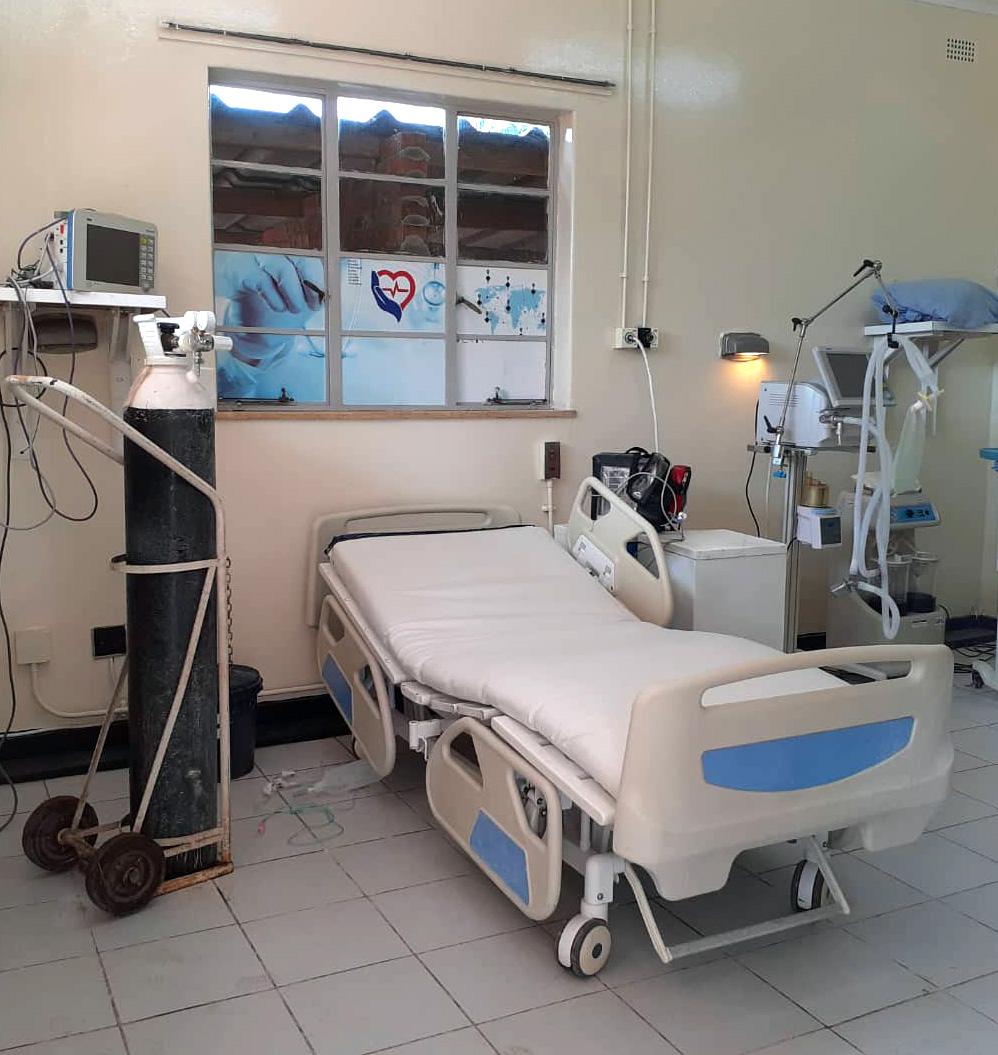ANALYSIS
‘Zimbabwe doesn’t have the resources to fight Covid’

Zimbabwe reported a 65% decline in positive Covid-19 cases over 72 hours. A closer inspection reveals that testing dropped by 59% over the same period amid the extension of a hard lockdown by another two weeks.
A more aggressive second wave of Covid-19 has put pressure on Zimbabwe’s dysfunctional public health system, and further eroded confidence in the ability of the government to safeguard its citizens who are unable to afford private healthcare.
Health workers at major public hospitals have been embarking on sporadic strikes since 2020 because of lack of personal protective equipment (PPE) among other essentials, while the government insists that all is under control.
Authorities have accused the media of peddling falsehoods and exaggerating the coronavirus situation in the country.
Addressing journalists in the capital on 25 January, the Home Affairs and Cultural Heritage Permanent Secretary, Aaron Nhepera, said: “Government has noted with deep concern the recent developments where mainstream media and individuals are spreading falsehoods on how the Covid-19 pandemic has affected the nation’s leadership.
“It is unacceptable and unethical to publicise falsehoods in a democratic society. Let us be reminded that such acts have the effect of causing alarm and despondency, not only to the individuals affected and their respective families, but to the nation as a whole. This has a destabilising effect at a time the nation is grappling with the Covid-19 pandemic.”
Treatment of Covid-19 patients
The cost of an initial Covid-19 admission at a private Zimbabwean hospital ranges from about $2,500 (R36,000) up to $5,000 (R73,000) and is out of reach of the vast majority, who largely rely on the country’s deeply troubled public health system.
Last week authorities warned that hospitals were becoming overwhelmed and encouraged people to “stay at home and be safe”. However, most Zimbabweans are aware of the fact that the public healthcare system has very little or nothing to offer.
Private laboratories charge around $70 (R1,000) for PCR tests, and government health authorities on Friday 22 January decentralised free PCR testing to 12 polyclinics around Harare in a bid to ease the pressure of human traffic on the capital.
Oxygen demand is soaring, but the poor masses who test positive or suspect they have the virus are resorting in desperation to herbal remedies. One such popular remedy is an aromatic indigenous shrub called Zumbani.
Also known as fever tea tree, the Zumbani leaves are crushed to make a hot drink or simply dipped into boiling water for steaming.
One of Zimbabwe’s leading health experts, Mpilo Hospital Acting CEO Professor Solwayo Ngwenya said, “What we don’t want is for people who are sick to continue steaming at home because oxygen levels and lung functions are not checked.
“We are in a dangerous situation where many people are going to be dying every day of Covid. There’s reduced testing, so we don’t really know the depth of this problem in the communities. The virus will spread rapidly because the population does not have any immunity as they have not been vaccinated.
“If left like this it’s going to escalate and we will see a lot of mass infections, patients looking for oxygen, overstretched health facilities and then massive deaths. This will play us for a long time.”
Zimbabwe’s public hospitals have hardly upgraded or improved working conditions since Robert Mugabe’s reign, which ended in November 2017.

Wilkins Hospital in Harare, a Covid-19 facility. (Photo: Fazila Mahomed)
The vaccine roll-out
Zimbabwe is still mobilising funds to procure Covid-19 vaccines because the Treasury did not make provision with the Ministry of Health and Childcare’s budget. Authorities have indicated that senior government officials will be prioritised for vaccination.
Norton House of Assembly representative Temba Mliswa told Daily Maverick, “Currently the country doesn’t have the resources to fight Covid. I don’t think sanitising and masking up is helping.
“As a legislator, I don’t think we should give the vaccine to ministers, members of Parliament, the bourgeoisie and high-ranking officials first and yet police officers, teachers, nurses and all the frontliners don’t have [it]. We need to respect these heroes and heroines instead and appreciate what they are doing in adverse conditions.”
Zimbabwe Hospital Doctors Association President Dr Tawanda Zvakanda said they have “not been consulted as an association by government with regards to the vaccine”.
“The situation hasn’t changed for doctors in public hospitals. We are still looking for PPE but, however, trying to make things work with whatever we have.”
The director of epidemiology in the Ministry of Health and Childcare, Dr Portia Manangazira, said: “There is obviously a serious need for a vaccine to control the spread of Covid-19 in the country, but we have to know which vaccine will be suitable for us as some of them are not meant for Africa.”
Mpilo Hospital’s Ngwenya believes that vaccines are problematic because of the “variant strains” and that “there’s so much unknown about the virus”.
“The strategy to stop Covid-19 in Zimbabwe will be painful because we neglected the situation. At this stage, we need a strict and prolonged lockdown, closing of shops, paralysing the public sector to stop the virus from spreading.
“Government needs to decide whether they want the carnage of dead people or take a knock on the economy. A hard[er] lockdown will stop hospitals from being overwhelmed and buy time to find vaccines so that at least 70% of the population would be vaccinated.”
On Monday, 25 January, the Ministry of Justice, Legal and Parliamentary Affairs changed the spot fines for violations of lockdown regulations from ZWL500 to ZWL5,000 or R900. Offences include breaking curfew, not wearing masks correctly and travelling without exemption letters.
But more than 90% of Zimbabwe’s population is in the informal sector. This includes vendors and many others who have remained in the streets, despite the current lockdown. The government has made very little allowance to cushion the struggling population.
On Thursday 28 January, 321 positive cases were recorded and this went down to 115 on Sunday 31 January, a 65% decline, which was mainly due to a 59% drop in testing, from 4,254 to 1,762 over the same period. To date, Zimbabwe has recorded 1,217 deaths and 33,388 confirmed cases.
Decades of economic hardships are compounding the impact of Covid-19 on ordinary citizens, while the political elite often travel outside the country for medical care. At least four million Zimbabweans live in South Africa, fleeing economic hardship. DM
"Information pertaining to Covid-19, vaccines, how to control the spread of the virus and potential treatments is ever-changing. Under the South African Disaster Management Act Regulation 11(5)(c) it is prohibited to publish information through any medium with the intention to deceive people on government measures to address COVID-19. We are therefore disabling the comment section on this article in order to protect both the commenting member and ourselves from potential liability. Should you have additional information that you think we should know, please email [email protected]"

















 Become an Insider
Become an Insider